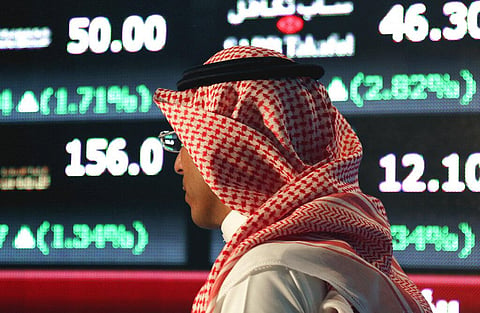

India’s trade outreach is fast becoming the centrepiece of its deepening relationship with the Middle East. In particular, India’s relations with Saudi Arabia have seen an unprecedented growth in recent years, with a sharp rise in trade and investments. Saudi Arabia’s abundance of natural resources, economic and cultural influence, its critical location in the Middle East and connectivity complement India’s capability to provide cost-effective technologies, human resources, capital and marketing opportunities. India’s growing economy, digital public infrastructure and institutional stability have made it a preferred trade and investment destination.
Saudi Arabia is pursuing an economic diversification strategy beyond hydrocarbons to newer domains exploring innovative investment tools and new collaborations from across the world. India was the fourth country after the UK, France and China to partner with the Saudis to establish a strategic partnership council in 2019. It is aimed at taking forward collaborations on economy and investments, apart from social, political and security issues.
Saudi Arabia contributes to India’s energy security and India supports Saudi Arabia’s food security. India imports 86 percent of its oil requirement and the Middle East accounts for over 60 percent of it. On the other hand, Saudi Arabia imports large parts of its food needs and manufactured goods including textiles. Therefore, the bilateral relationship is highly symbiotic.
The Future Investment Initiative (FII), established in October 2019, has grown as a global platform for businesses and countries to identify areas to innovate in for sustainable and inclusive growth. The seventh edition of the FII, held during October 24-25 in Riyadh, had the theme ‘the New Compass’. It looked at the emerging world economic order, provided a platform for dialogue between international businesses and leaders, and for trade and investment promotion.
Among the leaders, Piyush Goyal — Union minister holding the commerce, industry, textile, food and consumer affairs portfolios — was instrumental in forging trade and investment linkages between the two countries. Saudi Arabia is interested in Indian collaborations on lab-grown diamonds. Earlier this week, Saudi jewellery firm Dana Al-Alami partnered with Indian firm Green Lab Diamonds. Earlier this month, India and Saudi Arabia committed to exchanging electricity during peak hours, co-producing green hydrogen and renewable energy, and jointly establishing sustainable and resilient supply chains.
The emerging multi-polar world faces a number of worries — the Israel-Palestine conflict, Russia-Ukraine war, US-China tensions, post-pandemic economic woes, and impending fears of a worldwide recession. In this scenario, an effective bilateral institutional mechanism for trade and investment between India and Saudi Arabia would be mutually synergistic and provide a much-needed economic boost to both.
India’s credibility as a trade and investment destination received a major boost from a series of events hosted by India during its G20 presidency. Saudi Arabia is critical to establishing the ambitious new trade route — the India-Middle East-Europe Corridor — that was part of the G20 summit declaration. In recent years, structural reforms in Saudi Arabia on foreign investment, corporate governance and capital markets have increased Indian opportunities. India provides immense cost-effective opportunities for Saudi businesses in the fields of artificial intelligence, robotics, education, health and sustainability.
India’s trade with the Arab world has touched an all-time high of $240 billion. India is Saudi Arabia’s second largest trading partner, with bilateral trade reaching all time high of $52.75 billion in 2022-23. India’s major exports to Saudi Arabia are motor vehicles, petroleum products, rice, organic chemicals, copper products, telecom equipment, buffalo meat and aluminium products; it imports crude petroleum, fertilisers, raw plastic, and organic and inorganic chemicals.
Despite the Gulf region being home to the largest Indian community abroad, its enormous economic potential remains underexplored. The six countries of the Gulf Cooperation Council (GCC) — the United Arab Emirates, Saudi Arabia, Oman, Qatar, Kuwait and Bahrain — host over 8.8 million non-resident Indians, constituting over 66 percent of all NRIs. According to the Reserve Bank, the GCC accounted for about 30 percent of all foreign inward remittances in 2020-21. The large Indian diaspora in the Gulf, present at every level from the grassroots to top management, is keen to engage with Indian firms. This is an asset waiting to be tapped to its fullest potential.
Riyadh eyeing diversification beyond hydrocarbons
Saudi Arabia is pursuing an economic diversification strategy beyond hydrocarbons to newer domains exploring innovative investment tools and new collaborations from across the world. India was the fourth country after the UK, France and China to partner with the Saudis to establish a strategic partnership council in 2019.
Rakesh Mohan Joshi
Director, IIPM Bengaluru and professor, Indian Institute of Foreign Trade